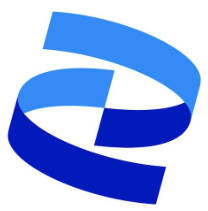Responsibilities
- Responsible for developing, maintaining, and refining system requirements and architecture
- Create and maintain documents, models & diagrams describing functional and physical decompositions, interface definitions, and flow diagrams
- Responsible for developing, maintaining, and executing system and subsystem design verification protocols
- Lead small project teams developing Cellares technology or testing strategies
- Mentor junior members of the Systems Engineering team on best engineering practices
- Support architecture definition by working with subsystem design teams to align overlapping design requirements, constraints, and drive teams in developing concepts, evaluating risks, and efficiently converging on a design path
- Translate architectural concepts into prototypes, integrate them, analyze results, and iterate on the design
- Work closely with product management to interpret customer, business, and compliance needs to define technical requirements
- Develop system models that guide design decisions. These can include system tolerance budgets, performance models, COGS models, etc
- Provide support to sub-system engineers in the development of models that guide lower-level design decisions
- Develop test systems for internal use to support both R&D experiments and pilot build testing needs
- Conduct design reviews and present fresh ideas, new technologies, and creative solutions to design problems
- Using a structured approach for problem solving, lead teams through complex root-cause analysis in which there are many possible root causes that involve various areas of physics and engineering
Requirements
- Bachelor's, Master's, or PhD in Physics or Engineering with 10+ years of extensive and hands-on experience in the development of analytical instrumentation, biotech automation, or similar is required
- Hands-on experience designing and integrating in the lab highly complex instrumentation prototypes that combine fluidic handling, electronic sensors, or robotics
- Specific expertise in bioprocessing technologies involved in cell therapy manufacturing is highly desired
- Working knowledge of requirements and risk management tools like JamaConnect, IBM Doors, TeamCenter, Orcanos, or Helix
- Experience with MATLAB, Python, or high-level scripting software languages for modeling, simulation, and data processing
- Working knowledge of Statistical Design of Experiments, Data Analysis and Visualization, with SW tools such as JMP, Minitab, and Tableau
- Excellent verbal, written, presentation, and interpersonal skills
- Strong analytical and problem-solving skills
- Demonstrated track record of rapidly climbing steep learning curves
- Prior experience working in ISO regulated environments (ISO 13485, ISO 14791)
- Creative, self-motivated, and flexible to work in a small company environment and assume a wide variety of tasks
- Desire to be part of a rapidly evolving organization, with a compelling technology, and taking products and processes to the next level
- Self-awareness, integrity, authenticity, and a growth mindset
Similar Jobs

What We Do
Cellares is revolutionizing cell therapy manufacturing. We are developing a one-of-a-kind solution, The Cell Shuttle, to overcome the challenges associated with manufacturing so these life-saving therapies are affordable and widely available to patients who can benefit.
The clinical impact of cell therapy in treating cancer has been proven, but this therapeutic approach has several limitations, especially in manufacturing, leaving extremely sick patients waiting for treatment and desperate for hope.
Since cell therapy is currently produced for a single patient at a time, it is expensive to manufacture, requiring significant time and resources, and is difficult to scale.
Preclinical and clinical scientists, as well as commercial cell therapy manufacturers also lack the options to fully automate their manufacturing process quickly, safely, cost-effectively and at the scale they need.
The Cell Shuttle is an automated and closed end-to-end manufacturing solution that is flexible and scalable, enabling customers to run exact processes specified for their cell therapy. Compared with the current manual manufacturing processes for cell therapy, the Cell Shuttle’s next-generation automated manufacturing solution has 10 times the scalability (meaning 10 times more patient doses can be produced simultaneously), enables a three-fold reduction in process failure rates and will reduce the per-patient manufacturing cost by up to 70 percent for most processes.









